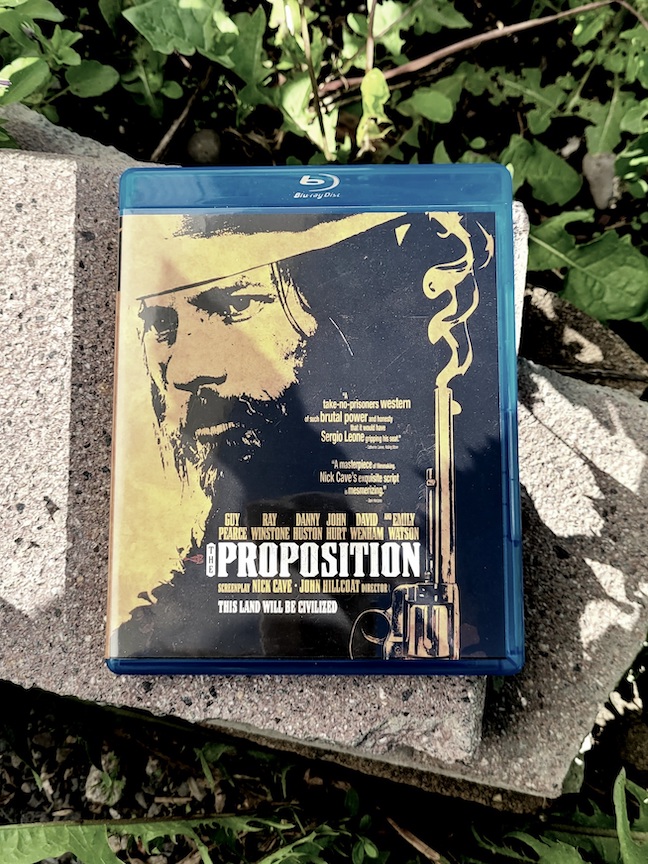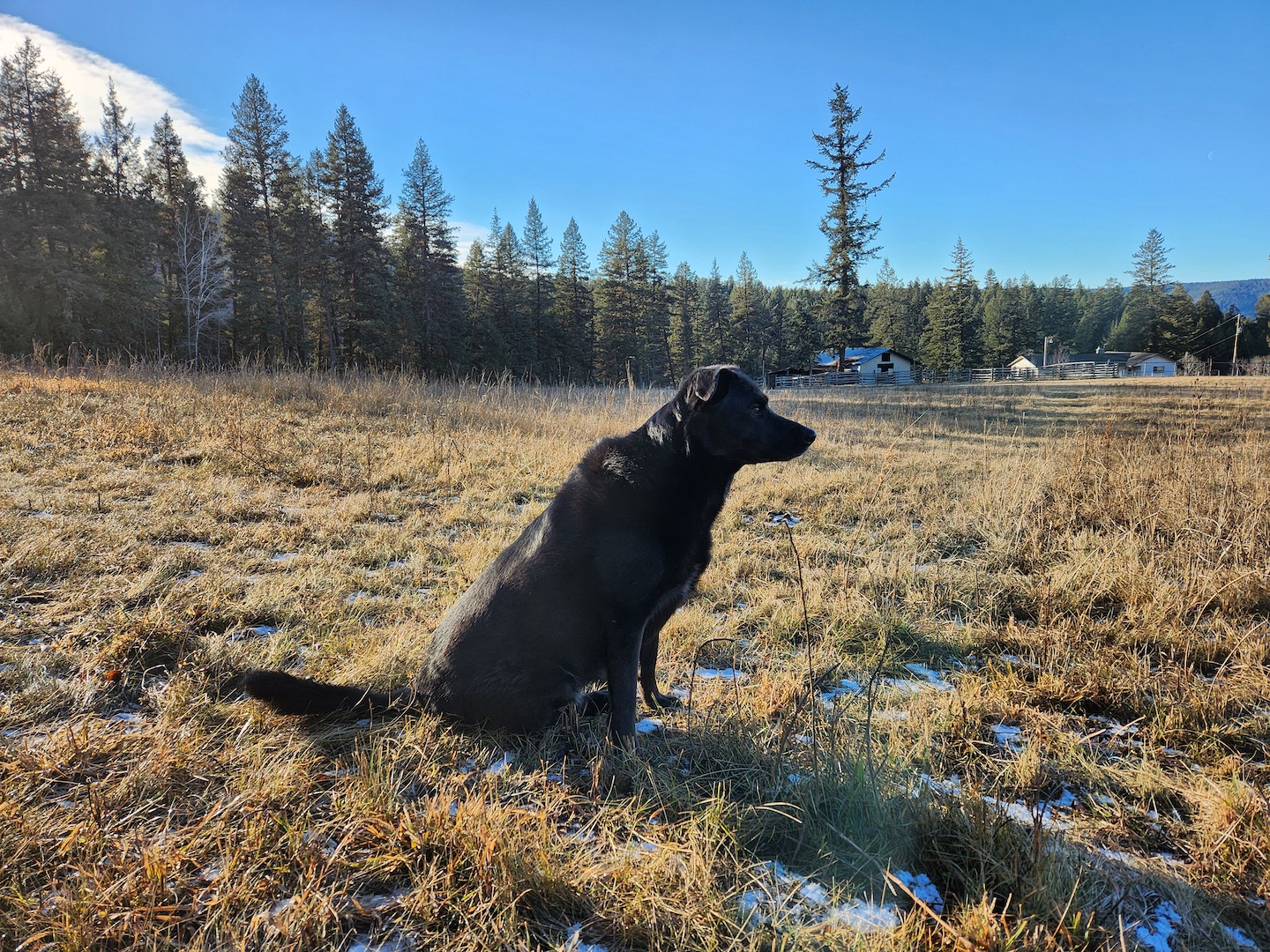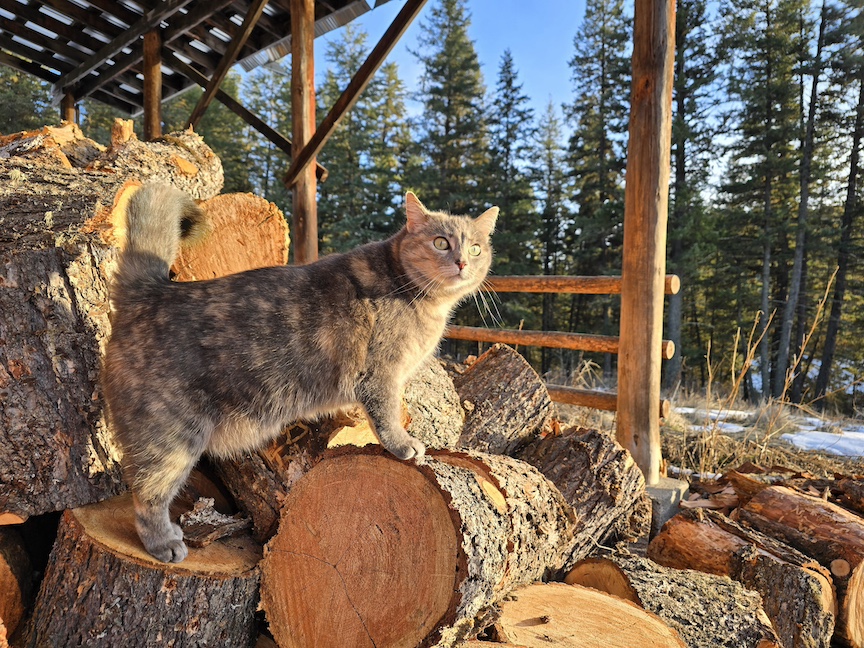Starring: Guy Pearce, Ray Winstone, Danny Huston, John Hurt, Emily Watson
Director: John Hillcoat
Released: 2005
Mood: If you can’t decide between watching a brutal action flick or a gritty AF Western and wish there was a movie that was the best of both worlds.
Every single review of The Proposition uses the word ‘brutal’, so I was pretty excited.
What did they mean? Brutal like Django Unchained and No Country for Old Men, where the screen is splattered with so much f*cking blood and viscera that it’s like the end of Splash Mountain at Disneyland? Or like Bone Tomahawk, where the brutality makes brief, straightforward appearances but haunts you for years afterward?
Well, The Proposition is its own kind of brutal. It’s not Tarantino-level gratuitousness, nor is it the stuff of horror films. It’s this uncomfortably realistic mixer of heavy violence and harsh existence on the edge of the 1880s Australian Outback.
We’re talking about a continent that TO THIS DAY is largely uninhabited because the natural environment and fauna are out to kill you 24/7. Couple that with a period where England was shipping over criminals by the thousands, add racial and classist tension, and you’ve got the very definition of a ‘brutal’ Western.
The Proposition is extremely well-made, has strong acting throughout, and is definitely worth a watch – if you’re up for those ugly, realistic details. And incessant flies. OMG, the flies.

The Proposition opens with so much gritty violence and an instant body count that has you gripping the couch and thinking, “holy shit, this is gonna be a nonstop shoot ‘em up!” It’s not. There’s a lot of secrecy, friction, and story-building before anything that rough happens again.
Bandit brothers Charlie (Guy Pearce) and Mikey (Richard Wilson) are the last ones standing. They’re captured and questioned by Captain Morris Stanley (Ray Winstone), who offers to spare them if Charlie will kill his older brother Arthur who is wanted for rape and murder. That’s the proposition.
Charlie sets out on his mission, but the townsfolk, including the prison guards and Stanley’s wife, want ALL of the brothers killed. Mikey faces lynching and torture, while Charlie grimly comes to come to terms with killing one brother to save the other.
Of course, nothing goes as planned. The less-bad people suffer the most, while the worst-bad people do a lot more bad shit. Throughout it all, you just know it’s building to a massively violent outcome. And when you reach that climax, you realize you’ve been primed by the constant ruthlessness of the men and their gruelling environment to expect the worst – and accept it.
![]()
While the violence skews to realism vs. gratuitousness, it’s still super shocking because of the gentle musical interludes. These come from all-star Western composer Nick Cave, aka the mastermind behind the sinister Assassination of Jesse James by the Coward Robert Ford soundtrack.
- Fun Fact #1: Nick Cave wrote the script for The Proposition, and supposedly completed it in just three weeks.
The opening credits roll over a soft song featuring children’s voices, then BAM! You’re in the middle of gunfire and screaming and so much death. The score handily guides your emotions from start to finish, not tricking you so much as nudging you through significant downtime to absorb details before you’re torpedoed into fight-or-flight mode.
And let me tell you, there is a LOT to trigger flight mode. You get flogging and spearing – neither of which are common in Westerns – and boots crushing someone’s face in, mixed with the usual shootouts, and a violent sexual assault.
The detail here is outstanding. You can see every line, every pore, every scar, and every fleck of blood, sweat, and dirt on each character’s face. Their teeth are disgustingly brown. The flies are not CGI, they are so ever-present that you’ll desperately want to swat them for the actors.
- Fun Fact #2: The wardrobe was handmade right down to each button on each outfit, and the firearms were all apparently custom period replicas made for The Proposition by one gunsmith.
And the natural scenery is just mind-blowing. Like I already said, Meat Pie Westerns are uniquely positioned to give you a West so much wilder than that of the United States, because the continent itself is so brutal that it’s still resisting civilization as we speak.
1880s Australia also lends perfectly to other striking contrasts, like white English people in fine clothes, surrounded by white picket fences and enjoying tea against the stark landscape, when right on the other side of the fence are poor, filthy locals, and Indigenous people being rounded up for horrific colonist genocide.
![]()
There are no weak actors in The Proposition. Even the extras who are shown for brief moments make a strong visual impact because of the attention to detail. The Indigenous characters and language are authentic. EVERYONE fully transports you to this place and time.
- Fun Fact #3: Hillcoat did extensive research into the period, which he circulated to the actors on set along with documentary footage of a Vietnam massacre, to help them grasp the mindset of remorseless killers.
Guy Pearce as Charlie Burns is this wiry, half-starved badass, and it’s never explained whether he did anything atrocious or not. But he’s thrust into the antihero role because his younger brother is more of a victim, and his older brother is the true villain.
Pearce is stoic in the manner of Clint Eastwood’s Man With No Name or Christian Bale in 3:10 to Yuma. His character’s darkness is conveyed through simmering looks and physicality, and it works. Apparently this is Pearce’s favourite movie he’s ever made.
Ray Winstone, on the other hand, gives you a sickly lawman who tries to make up for his physical weakness with bursts of moral conviction. Although Charlie is the antihero, Captain Stanley is unquestionably a mostly-good guy who is realistically defeated by the local law, his wife, and a physically powerful outlaw.
And then we have Danny Huston as the hunted, hated Arthur Burns. THIS is the Danny Huston I was missing in Yellowstone. That bloody terrifying character actor who, here, defies villainy conventions. Arthur lives in desert caves surrounded by literature, promoting the arts but approving rape, and is more interested in people’s motivations than in his own mortality.
The moment the sun started to set after Arthur was introduced, my fiancé shouted, “NO! We all know when the sun goes down Danny Huston gets his powers!” (Because 30 Days of Night.)
Also note-worthy are John Hurt as the mesmerizingly disgusting, mullet-rocking racist bounty hunter, and Richard Wilson dragging you through torturous pain – with barely any lines – as young Mikey Burns. And then there’s Tom Budge, radiating Ben Foster vibes as a skinny, disgustingly sadistic bad guy sidekick. Which is fitting, given that Ben Foster played that role in both 30 Days of Night and 3:10 to Yuma.
![]()
The Proposition is so painfully accurate to the period that it made me wonder what it would be like if my favourite Westerns could be reshot with this unflinchingly realistic lens.
Imagine Tombstone, or The Quick and the Dead, or The Cowboys made with today’s technology!
I wouldn’t throw this movie on all the time, because it’s pretty f*cking miserable. However, I’d totally recommend it to any fans of the modern, realistic side of the genre, and of course, fans of brutal action movies. Can we get more Aussie Westerns, please?


